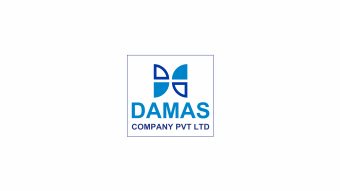
Removing Barriers Between Hotel Technology, Marketing and Operations
The perfect storm of economic decline, technological advancement, and consumer liberation may have created considerable challenges for the hospitality industry. However, the situation also presents a unique opportunity for organizations to adapt and recalibrate their operations to reduce asset loads, improve information exchange, and leverage customer self-service.
What forced us to remove these barriers between IT, Marketing and Operations?
Over the years, the scarcity of operating profits and investment capital resulted in budget constraints in the hotel industry. There was a need for asset-heavy operations to evolve into beasts that were lighter and more agile. Unlocked through digital transformations and by embracing cloud-based solutions, this ultimately helped organizations to decrease their capex while increasing their opex.
Concurrently, the technology sector was undergoing dramatic transformations. Mobile technology, cloud computing and social computing all experienced unprecedented growth. Soon, we found ourselves entering a state of profound interconnectivity, with data and information available right at your fingertips anytime or anywhere. The rapid assimilation of these technologies in our societies also gave birth to a new breed of travelers who brought with them a vastly different set of travel habits and expectations than any of their previous generations.
What are the external and internal challenges and the risks for the hotel industry in removing these barriers?
Hoteliers identified any potential future economic disruptions as external risks. Furthermore, many organizations are faced with significant resistance or openness within the team to change and often tend to struggle in facilitating the transformation of existing processes in place towards automation. Along with these, strategic and execution failure are also areas of concern.
“Data is King”. How can hotels future proof and become more intelligent in making quantifiable decisions in a converged operation?
Today, we collect data from all aspects of our operations, and it is safe to say that many of us do use this data to a certain degree in our decision-making process. However, it is a fair question to ask ourselves how many of us actually analyze the mined data in relation and comparison to data across other aspects of the hotel’s operations.
A hotel for instance captures PMS data, finance data, IBE and reservations data, additional services data (spa, watersports etc), CRM, CMS, website, advertising, IPTV, App marketing PR etc. Data is everywhere, but making sense of these data can only be done when they are analyzed together in a more holistic manner. This is where data visualization, business intelligence and machine learning comes to play. These tools help us identify trends, characteristics of our buyers and their relationships across all relevant variables. Furthermore, these tools also give us the ability to forecast, allowing us to optimize capital investment which helps us to achieve the best returns on investments.
What is the key to closing the gap between the business and technology objectives of an organization?
The secret is working closely and communicating openly between all operational groups of the organization which enables a culture that ultimately facilitates the identification and understanding of the individual needs of all the departments. This is where technologists step in. They create conditions in an organization’s environment that nurture this interconnectivity and facilitates the removal of these barriers through technological solutions
In order to achieve this, the conventional IT teams need to be fully revamped. Business and IT strategies need to be aligned while business objectives need to be aligned with IT objectives.
Hotels are continuously on the lookout to discover new and innovative methods to grow and attract new customers and reduce costs. Migrating to cloud computing and SAAS increases reliability, efficiency, security and scalability. This is the future, and this is how we make hotel operations intelligent, adaptive and resilient.
_________________________________________________________________________
Mohamed Shafraz Hafiz is a digital media professional, and former consultant for Visit Maldives. He also describes himself as a destination promoter, new media explorer, author and a social media nut with a passion for data. Shafraz is currently the Cluster Deputy Director Digital Marketing & Social Media for the group Pulse Hotels & Resorts.





